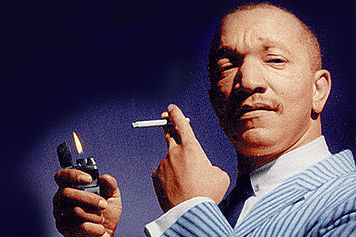
by Michael Seth Starr
“[T]his book returns life to a well-deserving comedy legend”¦.This well-presented biography will be especially valuable to those who were not around when Foxx was at the top of his game.”
““ Library Journal
MONTCLAIR, N.J. ““ In the eyes of most of America (certainly most of white America), Redd Foxx was an “overnight sensation,””materializing on television in 1972 at age 49 as the bow-legged, chest-clutching junkman Fred Sanford on the hit NBC sit-com, Sanford and Son.
But, as Michael Seth Starr recounts in Black and Blue: The Redd Foxx Story (September 2011, Applause Books, $27.99), Foxx arrived on the set of Sanford and Son as a street-smart, natural-born comic, who, through er talent, guile, and unbridled self-confidence, overcame a life of poverty in the slums of St. Louis to make his mark on three entertainment genres: stand-up comedy, recorded nightclub comedy, and, finally, television.
With the 1956 release of Laff of the Party, Foxx was crowned “King of the Party Records,””and his frank, trailblazing style opened the door for generations of African-American comedians, including Dick Gregory, Bill Cosby, Richard Pryor, Eddie Murphy, and Chris Rock, but did little for his own career. Shielded from mainstream (that is, white) audiences both by the color of his skin and his refusal to tone down his act, Foxx eventually clawed his way up the show-business ladder, breaking through in Las Vegas and New York and appearing in a few films, before that first episode of Sanford and Son in January 1972 changed his life utterly. Sanford and Son took Foxx to the pinnacle of television success, but it also proved to be his downfall.
Based on Starr’s interviews with dozens of Foxx’s friends, confidantes, and colleagues, Black and Blue: The Redd Foxx Story provides unique insight into this generous, brash, and vulnerable performer ““ a man Norman Lear described as “inherently, innately funny in every part of his being.”

